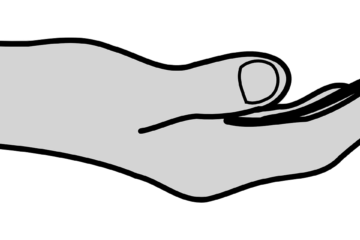There are two main types of HSAs. But what should you pick? An HSA cash account or HSA investment account. They both can do the same things but have different benefits and drawbacks. An HSA is an excellent tool to help you both pay for medical expenses as well as save for the future. But if you don’t use the accounts correctly, you can be missing out on a lot of financial benefits. Let me explain the benefits and drawbacks of both HSA cash accounts and HSA investment accounts.
(1) Cash Account Benefits
An HSA cash account is an HSA that is basically invested in cash and cash equivalents. That means that it is invested basically like your savings account at your bank. You won’t earn hardly any interest on it but there is virtually no risk of losing money either.
here is really only one benefit to an HSA cash account. But it is a really big benefit.
If you are using your HSA as a sort of medical bill clearing account, the HSA cash account is the way to go.
If you are paying for each medical bill with your HSA as they come due then the cash account would be the best way for you to do it.
An HSA cash account is a safe place to put money away (tax free) to pay for your medical bills.
You don’t have to worry about losing money in the market or anything like that. If you need the money, it will be there just like if you were to keep it in a savings account at your bank. The main difference is that you won’t pay taxes on the money that is put into your HSA (whether it be a cash or investment account).
(2) Cash Account Drawbacks
The largest drawback for an HSA cash account is that you will earn virtually no interest on the money that is in it.
However, if you are using it as a medical bill clearing account, that is just fine!
If you plan on using your HSA as an investment account, you do NOT want it to be in a cash account. That would be like saving for retirement in a savings account at your bank. It won’t work in the long term because you won’t earn enough interest to outpace inflation or take advantage of compound interest.
(3) HSA Investment Account Benefits
The HSA is such an interesting financial tool because you have two ways to use it. You can have an HSA cash account and HSA investment account.
The way that an HSA investment account works is that the money that you put into the account is invested to hopefully earn interest. The money can be invested in hundreds of different ways. Some ways are very risky, but offer a really high return. While some other ways are very conservative and offer a very low return. And of course, there are many investments somewhere in the middle.
If you are investing into an HSA and NOT using the money for medical expenses, but instead paying for your medical expenses out of pocket, then the HSA investment account is the way to go.
So the largest benefit to an HSA investment account is that the money that you put into it can earn interest and grow over time, just like a retirement account.
Another large benefit to an HSA investment account is that the money can be withdrawn at a later date but before retirement as long as you can prove that you spent money (not HSA money) on medical expenses while the HSA was open.
(4) HSA Investment Account Drawbacks
The main drawback with an HSA investment account is that the amount in the account will ride with the market. What I mean by this is that if the market is down and you need to pull money out of your HSA, you will have less money to draw on.
That can be a really big problem.
If you have a major medical emergency and need to draw money out of the HSA and it is not there you might be forced to let those medical bills go to collections, put them on a credit card, or even file for bankruptcy.
Make sure that if you are using an HSA investment account that you either have a way to pay for your medical bills outside of the HSA or you have an HSA cash account to rely on if you need to pay for some medical bills.
Final Thoughts
HSAs are GREAT tools but can be confusing at times. So if you are not sure if you should put money into an HSA cash account or HSA investment account here is the criteria that I use to decide.
Are you going to use the HSA to pay for medical bills as you incur them? If you are, then use an HSA cash account. And if you will pay for them with your regular bank account, then put money into an HSA investment account.
If you are not sure how you are going to pay for medical bills then put money into an HSA cash account. And if, over time, you have paid for medical bills with something other than your HSA or simply haven’t had any medical bills, transition over to the HSA investment account over time.
Here is the bottom line. You need to have enough money to cover your medical deductibles (and hopefully your max out of pocket costs). You can do that through a:
- Savings account
- HSA cash account
- Your regular income
So if you have put money into your HSA cash account over time and now have enough to cover your deductibles (at a minimum) then you should transition into investing into an HSA investment account. Your HSA cash account will still be there to use if you have a medical need for it. But since you have a buffer, it would be wise to start investing that money going forward to earn interest.
I know that this can be confusing. That is why I am here!
I will do all that I can to help you sort through the confusing landscape of personal finance and money.
I am here for you!
You can do this!
Until next time!



0 Comments